Are you new to gardening and looking for easy tips and techniques to get started? Look no further! In this guide, I’ll share with you some simple gardening ideas that will help even the most inexperienced gardeners develop a greener thumb in no time.
If you’re just starting out, it’s important to begin with the basics. By focusing on the fundamentals of gardening, you can build a strong foundation for growing healthy plants and beautiful flowers. Whether you’re interested in starting a garden for aesthetic or practical reasons, these beginner gardening tips will have you on your way to an easy gardening for beginners.
Key Takeaways:
- Starting with easy plants and techniques can help build confidence in beginners.
- Understanding the needs of different plants is crucial for successful gardening.
- Proper soil drainage and moisture are essential for plant health.
- Gardening can be a great learning experience for children.
- Protecting your garden from pests and critters is important for maintaining healthy plants.
Getting to Know Your Plants: Understanding Their Needs
One of the key factors in successful gardening is getting to know your plants and understanding their unique needs. As a beginner gardener, it is essential to familiarize yourself with the specific requirements of each plant, including their watering schedules, light needs, and soil types.
Observation is key to understanding your plants. By observing their leaves, growth patterns, and reactions to different environments, you can determine if they need more or less water, more or less light, or if they need to be rotated.
Setting reminders on your phone to water your plants regularly is a common tip to prevent over-watering or under-watering. However, it’s important to not rely solely on these reminders and to also visually inspect your plants to ensure they are not showing signs of stress or over-saturation.
Adequate light is also essential for your plants to thrive. Make sure to place your plants in areas where they can receive the right amount of sunlight for their specific needs. If natural light is not available, consider using artificial grow lights.
In addition to light, soil drainage is crucial for plant health. Waterlogged roots can cause root rot and other issues that can be detrimental to your plants. To promote proper drainage, choose the right soil for your plants and consider adding materials such as sand or perlite to improve drainage in heavier soils.
By taking the time to get to know your plants and providing them with the proper care they need, they will reward you with beautiful blooms and healthy growth.
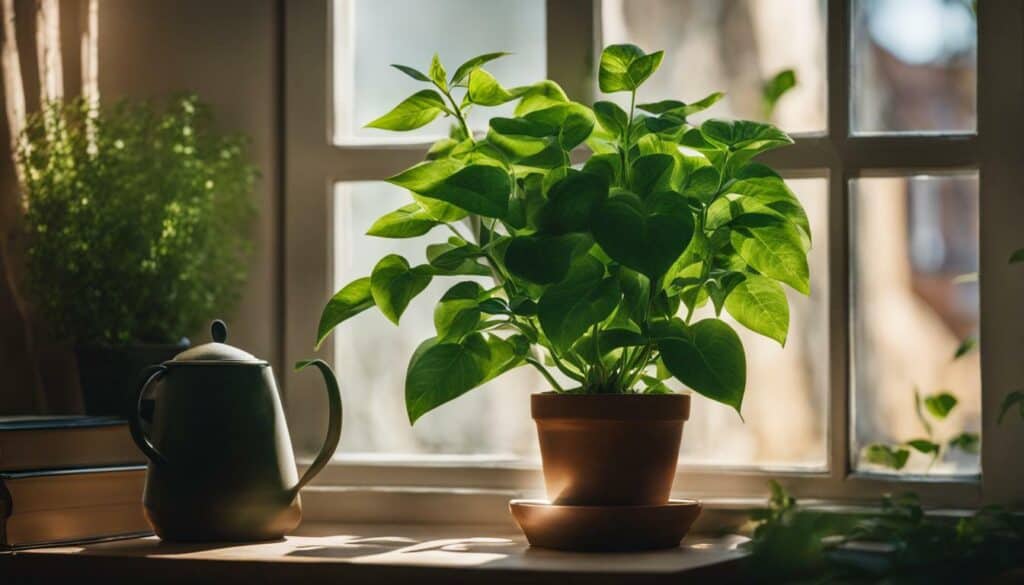
Gardening can teach important life lessons such as persistence, patience, and mindful compassion.
Gardening is an excellent way to connect with nature and appreciate where our food comes from. As a beginner gardener, consider using the following tips for successful gardening:
- Use the right soil for your plants
- Keep critters away from your garden
- Learn frost dates to properly time your planting
- Plant your seeds in the right direction
- Feed your plants well, with either organic fertilizers or compost
- Grow herbs for use in cooking and cocktails
- Start with easy plants, such as herbs, lettuce, and tomatoes
- Consider mulching to conserve water and improve the health of your soil
- Water your plants the right amount, checking soil moisture before watering
- Use chamomile tea to prevent disease in your plants
Gardening is not only a therapeutic activity but also a fantastic way to learn and grow. By following these tips and getting to know your plants, you’ll soon develop a green thumb and be able to enjoy the benefits of your hard work.
Ensuring Adequate Light for Your Plants
Proper light exposure is essential for the healthy growth of your plants, especially for beginner gardeners. All plants require some amount of light, but the specific needs vary depending on the type of plant. To ensure your plants thrive, it’s important to pay attention to their light requirements and make adjustments accordingly.
One way to ensure adequate light for your plants is to observe their growth and adjust their placement accordingly. If you notice your plant leaning towards the light source, it’s an indication that it needs more sunlight. Conversely, if your plant is growing slow and the leaves are fading, it may need less sunlight.
Turning your plants occasionally can also help them receive equal light exposure on all sides. This can prevent them from growing lopsided due to one-sided light exposure.
For beginner gardeners, it’s recommended to start with beginner-friendly plants that have lower light requirements. Some easy plants that do well in low light conditions include snake plants, pothos, and Chinese evergreens. As you become more experienced, you can gradually add plants with higher light requirements to your collection.
Proper soil drainage and moisture levels are also crucial factors in promoting healthy plant growth. Make sure to use soil with proper drainage holes to prevent waterlogging, which can cause root rot. Additionally, water the soil when it feels dry and crumbly to the touch. A good tip is to set a reminder on your phone to water your plants on a regular basis.
Gardening is a great way to spend time outdoors and learn valuable life lessons. It can teach persistence, patience, and mindful compassion for living things. With these tips, beginner gardeners can start their gardening journey with confidence and success.

Creating Proper Soil Drainage
Good soil drainage is crucial for the overall well-being of your plants, and it’s a simple gardening project that beginners can easily tackle. Here are some tips to help you create proper soil drainage in your garden:
- Use soil with good drainage: When selecting soil for your garden or potted plants, choose a loose, well-draining soil. Avoid heavy clay soils that tend to hold water and become compacted.
- Add organic matter: Incorporate organic matter, like compost or aged manure, into the soil to improve its drainage. Organic matter helps to break up heavy soils and allows water to flow more freely.
- Check for drainage holes: Make sure that your pots or containers have drainage holes at the bottom. This allows excess water to escape, preventing waterlogging and root rot.
- Use gravel or rocks: Place a layer of gravel or rocks at the bottom of your pots or containers before adding soil. This helps to improve drainage by creating space for water to flow out.
- Avoid overwatering: Be mindful of how much water your plants need. Overwatering can lead to waterlogged soil and suffocate the roots. Water your plants only when the top inch of soil feels dry to the touch.
By following these tips, you can ensure that your plants have proper soil drainage, promoting healthier growth and preventing water-related issues. Happy gardening!
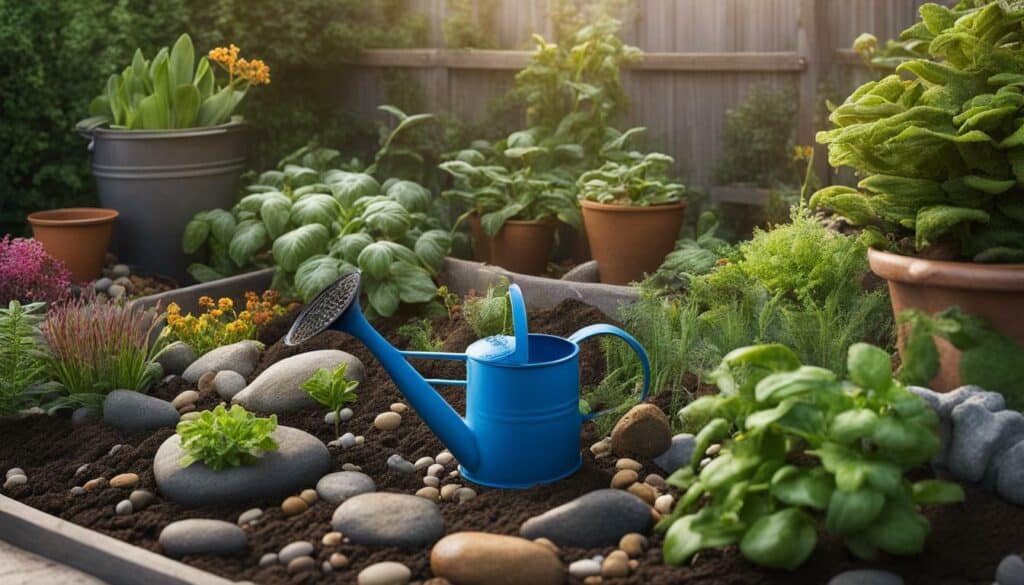
Checking Soil Moisture Before Watering
Before reaching for the watering can, it’s essential to check the moisture level of your soil to ensure your plants receive the right amount of water. Over-watering or under-watering are common reasons for houseplants to die. Setting a reminder on your phone to water your plants once a week can help prevent these issues. But, it’s also important to get to know your plants and their specific needs. Paying attention to the condition of the leaves and other signs of growth can indicate if a plant needs more or less water.
Checking the moisture content of the soil is another effective way to determine if watering is necessary. Dry and crumbly soil indicates that the plant is thirsty, while slightly damp soil means the plant has enough moisture for now. To check for moisture, insert your finger about an inch deep into the soil near the base of the plant. If it feels dry, it’s time to water. If it feels damp, wait a few more days before watering.
It’s important to note that different plants have different watering needs. Some plants, such as succulents, prefer to have their soil completely dry before being watered, while others, such as ferns, like to stay consistently moist. Understanding your plant’s specific needs and checking the soil moisture regularly will help you determine the best watering schedule for your plants.
In addition to watering, other factors to consider for plant care include proper light exposure, soil drainage, and using the right type of soil. Gardening can be a rewarding and educational experience for kids, teaching them lessons in persistence, patience, and mindfulness.
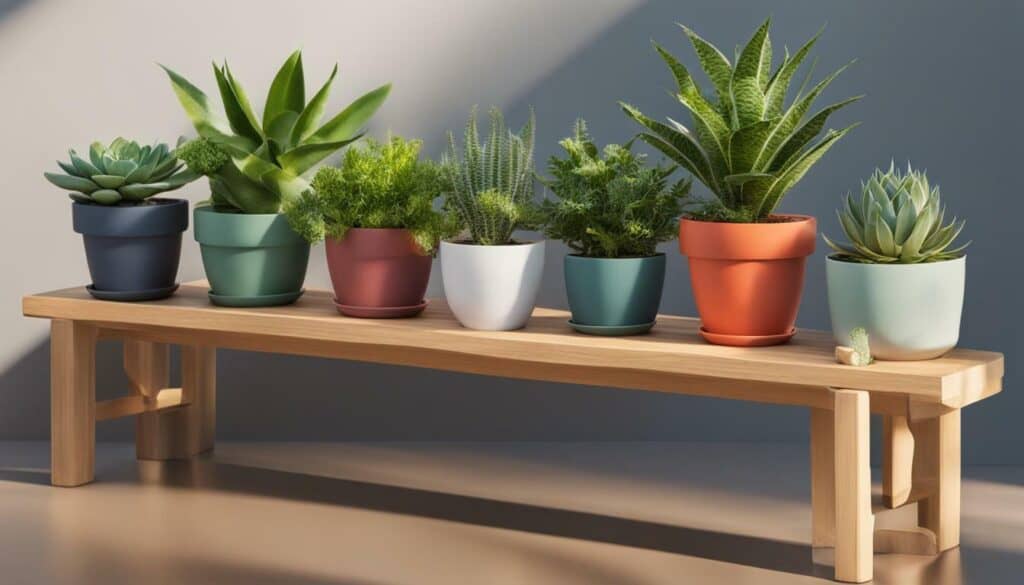
Gardening as a Learning Experience for Children
Gardening is not only a fulfilling hobby, but it can also be a valuable learning experience for children, teaching them important life skills and fostering a love for nature. As a beginner, starting a garden with your child can be a fun and rewarding experience, but it requires patience and a willingness to learn.
One of the key lessons gardening teaches is persistence, as kids learn that a successful garden requires continuous work and effort. They have to plant the seeds, water them regularly, and pull out any weeds that might grow. Over time, they can watch their plants grow and eventually bear fruit.
Patience is another important lesson that children can learn through gardening. It takes time for plants to grow, and fruits and vegetables to ripen. Gardening can teach children to appreciate the time and patience it takes to grow their own food.
Gardening also teaches mindful compassion as children develop an awareness of the needs of their plants and learn to care for them. They learn to notice changes in their plants, like wilting leaves or yellowing of the stems, and to take action to address the issue. This mindfulness can translate to other areas of their lives, such as caring for animals or even other people.
Additionally, gardening offers numerous nutritional benefits and health effects when children grow their own food. They can learn about the importance of eating fresh fruits and vegetables and how to prepare them. When children are involved in growing their own food, they are more likely to eat healthier and develop good eating habits.
Getting kids involved in gardening at a young age allows them to carry these lessons with them throughout their lives. They learn to appreciate the environment and nature while enjoying the benefits of growing their own food. It’s an excellent opportunity to bond with your child while teaching them valuable life skills.
Gardening Ideas for Children
There are plenty of gardening activities that you can do with your child, regardless of the space you have available. Here are some ideas:
- Plant a small herb garden on a windowsill or balcony.
- Start a container garden using pots or repurposed containers.
- Plant a vegetable garden in your backyard or community garden.
- Grow flowers or plants that attract pollinators like bees and butterflies.
- Create a fairy garden to spark your child’s imagination.
Remember, gardening with your child is about fostering a love for nature and teaching them important life skills. Have fun, get creative, and enjoy the process together!
Essential Tips for Successful Gardening
To ensure your gardening efforts are successful, here are some essential tips that all beginners should keep in mind:
- Set a reminder: Set a reminder on your phone to water your plants consistently. This will help you establish a routine and ensure that your plants are getting the water they need to grow and thrive.
- Get to know your plants: Every plant is different and has unique needs. Take the time to learn about the specific needs of the plants you are growing, including their watering schedules, light requirements, and soil types.
- Provide adequate light: All plants need adequate light to grow and thrive. Make sure you choose the right location for your plants and understand their sunlight requirements. If you don’t have access to natural light, consider investing in a grow light to provide your plants with the necessary light they need.
- Ensure proper soil drainage: Proper soil drainage is essential for healthy plant growth. Be sure to provide enough drainage to prevent waterlogged roots and promote plant health. You can improve drainage by adding compost to clay soil or digging trenches in areas with poor drainage.
- Check soil moisture: Before you water your plants, check the soil moisture level. This will help you avoid over or under-watering your plants, which can be harmful to their growth. A simple way to check soil moisture is to stick your finger in the soil up to your first knuckle. If the soil feels dry, it’s time to water.
- Be patient: Growing healthy plants takes time. Be patient and allow your plants to grow and bear fruit at their own pace.
- Practice mindful compassion: Remember that plants are living things and need care and attention. Take the time to practice compassionate care and mindful gardening, and you will be rewarded with healthy, vibrant plants.
- Use the right soil: Different plants require different types of soil. Make sure you use the right soil for the plants you are growing to ensure healthy growth.
- Keep critters away: Pests and critters can be harmful to your plants. Use easy, beginner-friendly strategies like companion planting and natural pest repellents to keep them at bay.
- Mind the frost dates: Be aware of the frost dates in your area and plant your garden accordingly. Planting too early or late can cause your plants to wither or die.
- Plant rows north to south: Planting your rows north to south can help ensure that your plants get the right amount of sunlight and reduce the risk of shading one another.
- Feed plants well and regularly: Fertilizing your plants is essential for healthy growth. Make sure you feed your plants regularly with the right type of fertilizer for the plants you are growing.
- Grow herbs: Herbs are easy to grow and can be used in a variety of dishes. They also have many health benefits. Consider growing a few herbs in your garden to add some variety and flavor to your meals.
- Start with easier plants: If you’re new to gardening, start with easier plants that are more forgiving and require less maintenance. This will help you build confidence and become a better gardener over time.
- Consider mulching: Mulching can help retain moisture in the soil and regulate temperature. Consider adding a layer of mulch to your garden to help your plants grow healthier.
- Water the right amount: Make sure you water your plants the right amount. Over-watering can lead to root rot, while under-watering can cause wilting and stunted growth. Check your plants’ specific watering needs and adjust accordingly.
- Use chamomile tea: Chamomile tea has natural antifungal properties and can help prevent diseases in your plants. Consider using chamomile tea as a natural and easy way to keep your plants healthy.
By following these tips and techniques, you can create a successful and beautiful garden that you can enjoy for years to come. Remember to be patient, practice compassionate care, and have fun!
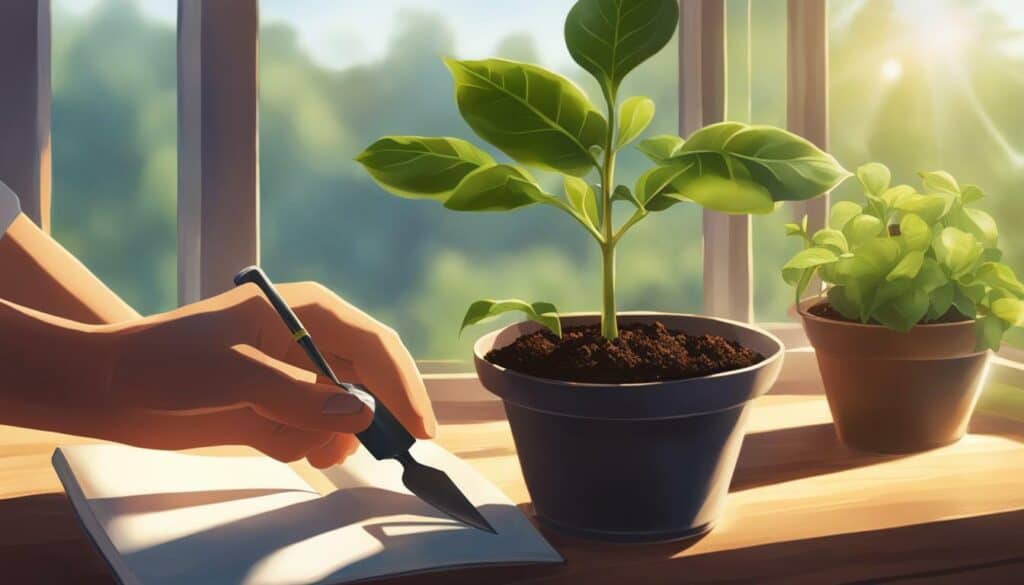
Protecting Your Garden from Pests and Critters
One of the challenges that many gardeners face is dealing with pests and critters that can wreak havoc on their plants, but with these simple techniques, you can keep them away. The first step is to get to know your plants and be aware of any signs of distress or infestation that may indicate a pest problem. Regularly checking for these signs and taking prompt action can prevent a minor problem from becoming a major issue.
Another crucial factor in protecting your garden is providing the right amount of light and ensuring proper soil drainage for your plants. This will not only help your plants grow stronger but also prevent pests and diseases from taking hold.
Planting certain flowers and herbs can also help deter bugs and deer. For example, planting lantana, garlic, and agave can help keep unwanted pests away from your garden. Additionally, practicing regular maintenance such as pruning dead leaves and branches, and watering your plants appropriately can help keep your garden healthy and free from pests.
By following these tips and being vigilant, you can protect your garden and enjoy a bountiful harvest.
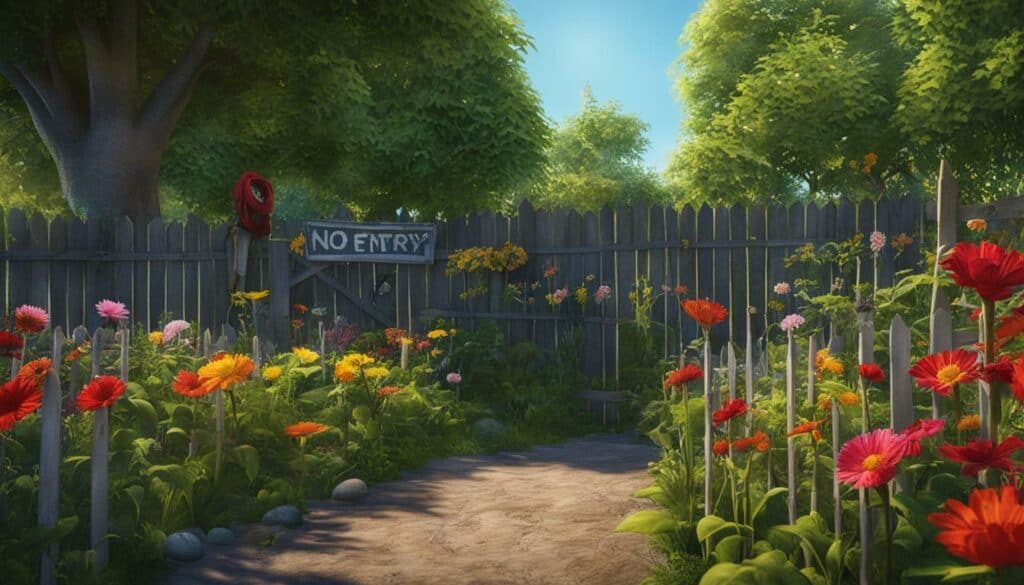
Remember that prevention is better than cure, so it’s important to take proactive steps to keep pests and critters away from your garden. With a little time and effort, you can maintain a healthy and thriving garden that brings you joy and satisfaction.
Conclusion on Easy Gardening for Beginners
Congratulations! You’ve now learned some easy gardening tips and techniques that will help you become a successful gardener, even as a beginner. Remember to always get to know the specific needs of each plant and provide adequate light and proper soil drainage and moisture. By involving children in gardening activities, you can also instill important life lessons such as persistence, patience, and mindful compassion.
Gardening can be a personal and fulfilling hobby that brings joy and nourishment. To get started, use the right soil, take measures to keep critters away, be mindful of frost dates, plant in the right direction, water and feed the plants properly, consider using mulch, and use natural remedies such as chamomile tea to prevent diseases.
Remember, gardening is a continuous learning process, and even with some trial and error, the rewards of growing one’s own food and connecting with nature are well worth the effort. Use this guide as your gardening companion and embark on an exciting journey towards a greener thumb. Happy gardening!
FAQ on Easy Gardening for Beginners
Q: What are some easy gardening tips for beginners?
A: Some easy gardening tips for beginners include setting reminders to water plants regularly, getting to know your plants and their needs, ensuring they receive adequate light, providing proper soil drainage, and checking the moisture of the soil before watering.
Q: What can gardening teach children?
A: Gardening can teach children persistence, patience, and mindful compassion.
Q: What are some essential tips for successful gardening?
A: Some essential tips for successful gardening include using the right soil, keeping critters away, learning frost dates, planting in the right direction, feeding plants regularly, growing herbs, starting with easy plants, considering mulching, watering plants appropriately, and using chamomile tea to prevent damping-off disease.
What are some easy landscaping tips for beginners?
Looking to give your garden a makeover? Here’s a beginners guide to landscaping a garden. Start by sketching your ideas on paper, considering factors like sunlight and soil quality. Choose low maintenance plants, like succulents or native species, and group them based on their watering needs. Adding mulch can help minimize weed growth and retain moisture. Don’t forget to regularly trim and prune to keep your garden looking clean and inviting.
Source Links
- https://realitydaydream.com/a-beginners-guide-to-a-green-thumb-keeping-plants-alive/
- https://www.doinggoodtogether.org/bhf/blog/little-green-thumbs
- https://evashockey.com/gardeninghacksgreenthumb/
- https://naturezedge.com/gardening-guides-tips
- https://shiftingroots.com/10-easy-vegetables/
- https://www.amazon.com/Beginners-Guide-Gardening-Easy-Follow/dp/1580115632
- https://www.almanac.com/vegetable-gardening-for-beginners
- https://www.gardendesign.com/how-to/
- https://extension.okstate.edu/fact-sheets/basic-plant-care-understanding-your-plants-needs.html
- https://www.lampsplus.com/ideas-and-advice/grow-lights-for-indoor-plants-_2d00_-getting-started/
- https://getbusygardening.com/lighting-for-seedlings/
- https://www.gardeners.com/how-to/gardening-under-lights/5080.html
- https://www.almanac.com/soil-preparation-how-do-you-prepare-garden-soil-planting
- https://mygardenlife.com/projects/how-to-improve-soil-drainage
- https://www.bhg.com/gardening/yard/soil/what-is-well-drained-soil/
- https://gardenbenchtop.com/how-to-use-soil-moisture-meter/
- https://www.gardeningknowhow.com/garden-how-to/soil-fertilizers/testing-moisture-in-plants.htm
- https://gardenerspath.com/gear/tools-and-supplies/soil-moisture-meter/
- https://www.canr.msu.edu/news/gardening_with_young_children_helps_their_development
- https://littlesproutslearning.co/benefits-of-gardening-in-early-childhood-settings/
- https://ginghamgardens.com/gardening-with-children/
- https://miraclegro.com/en-us/gardening-101/10-top-gardening-tips-for-beginners.html
- https://www.gardenersworld.com/how-to/grow-plants/gardening-for-beginners-10-tips/
- https://www.onsuttonplace.com/gardening-tips-for-beginners/
- https://www.familyhandyman.com/list/how-to-safely-deter-animals-that-steal-from-your-garden/
- https://www.countryliving.com/gardening/garden-ideas/g4144/protect-your-garden-from-critters/
- https://www.greenmatters.com/p/protect-vegetable-garden-animals
- https://www.thehappychickencoop.com/vegetable-gardening-for-beginners/
- https://content.ces.ncsu.edu/home-vegetable-gardening-a-quick-reference-guide
- https://www.betterhealth.vic.gov.au/health/healthyliving/gardening-for-children

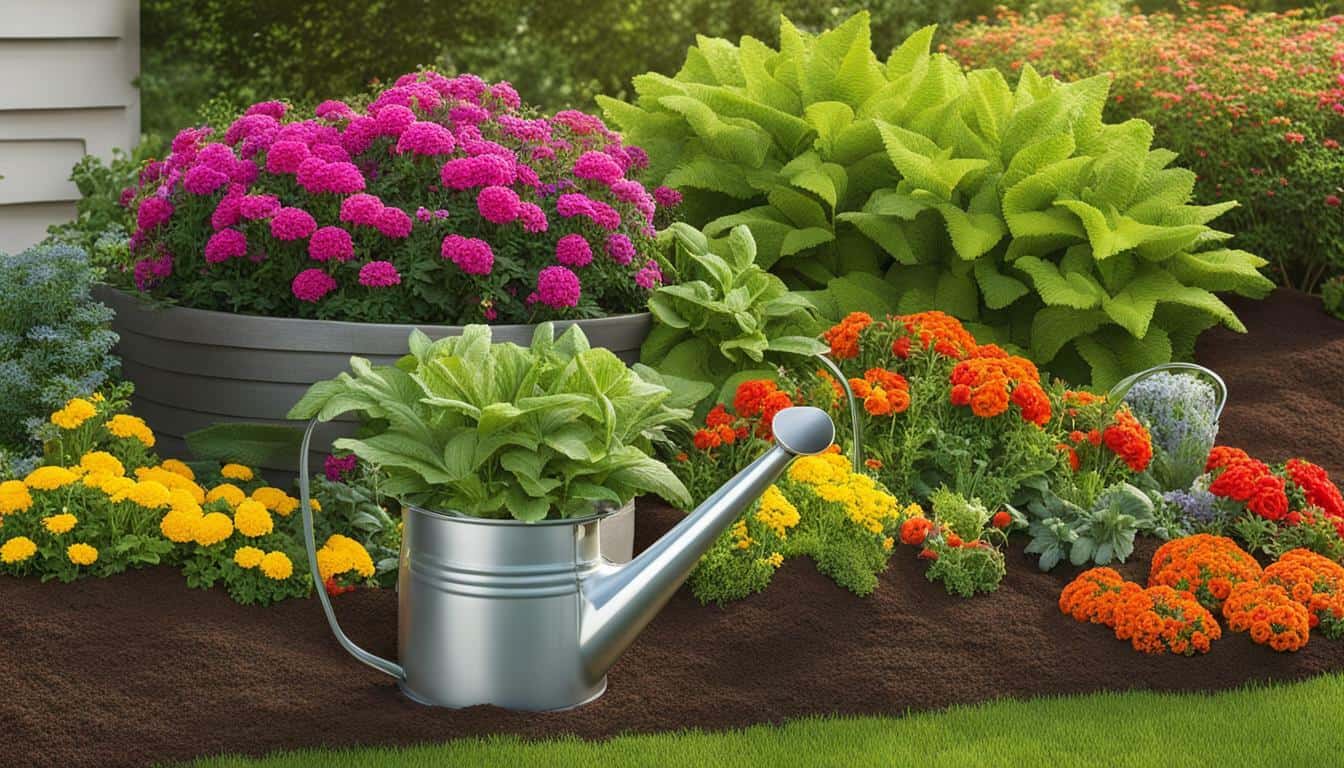
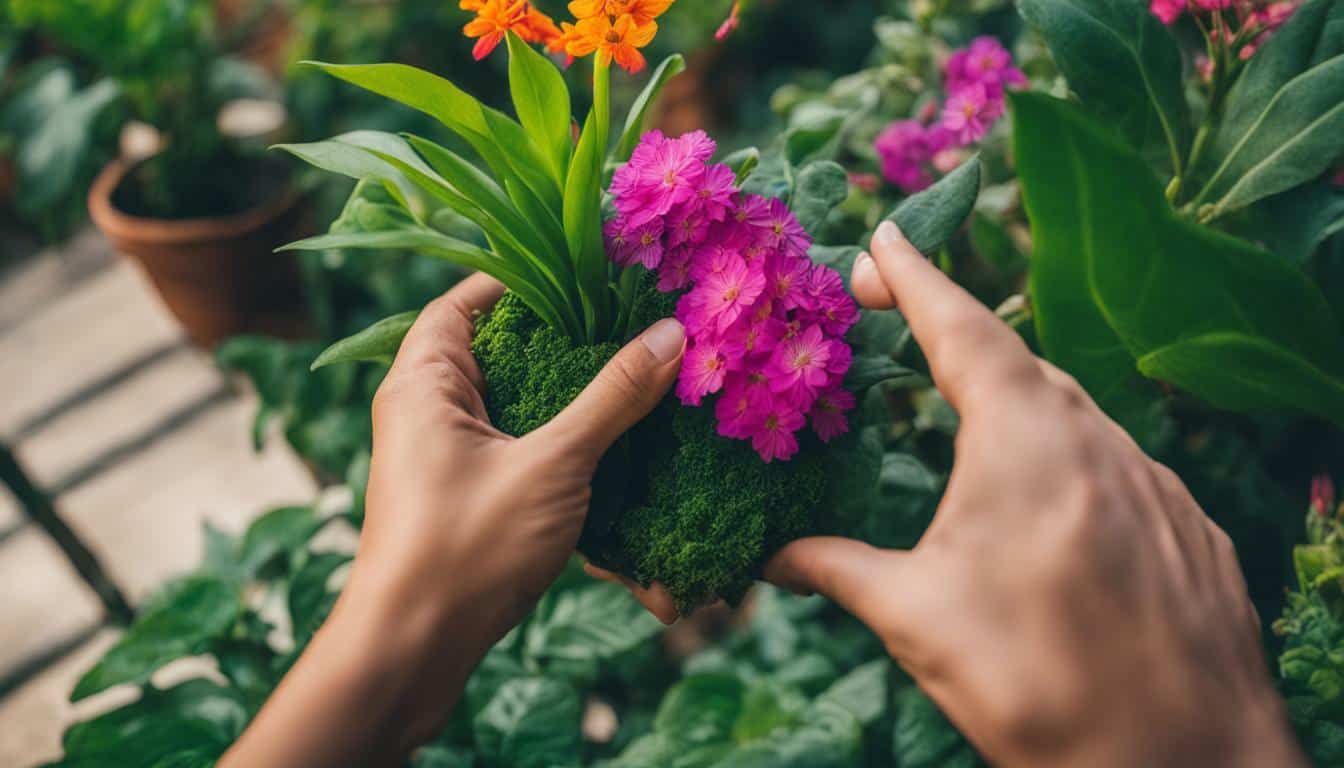
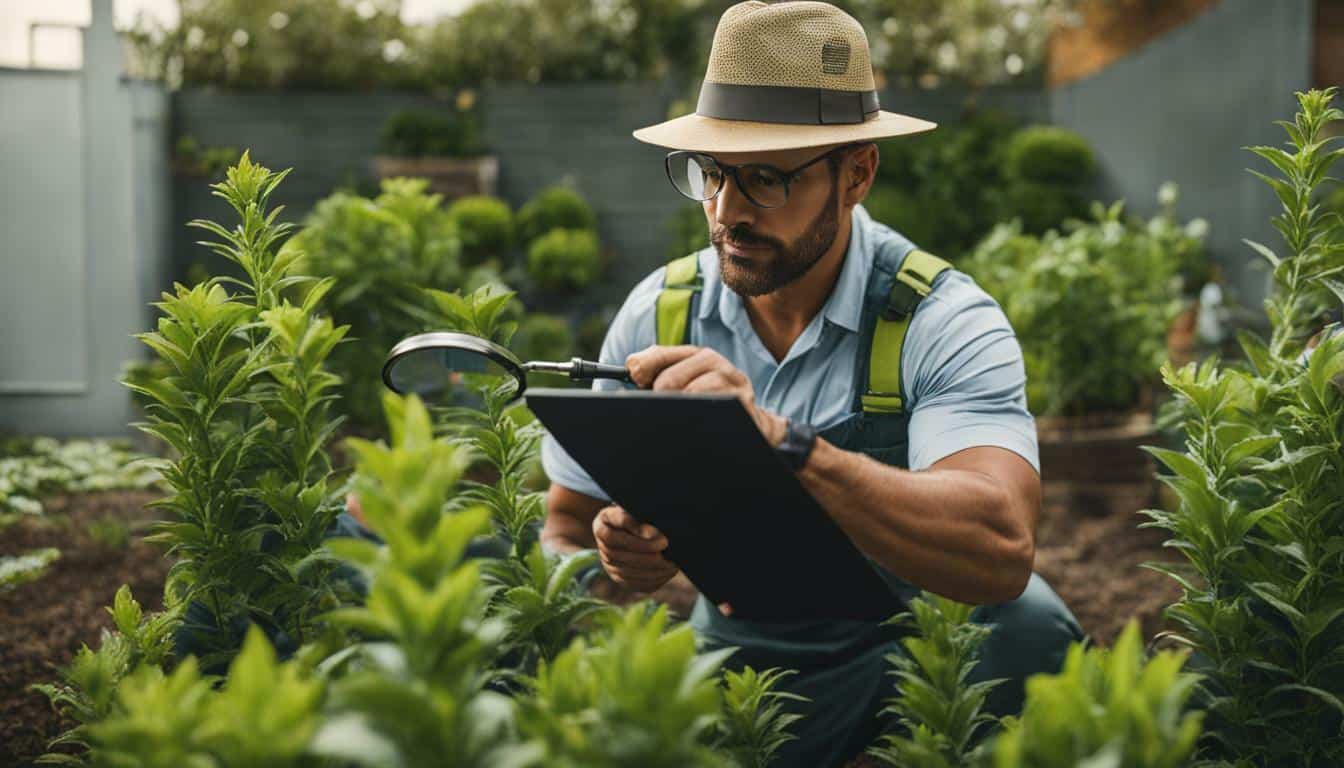

Leave a Reply